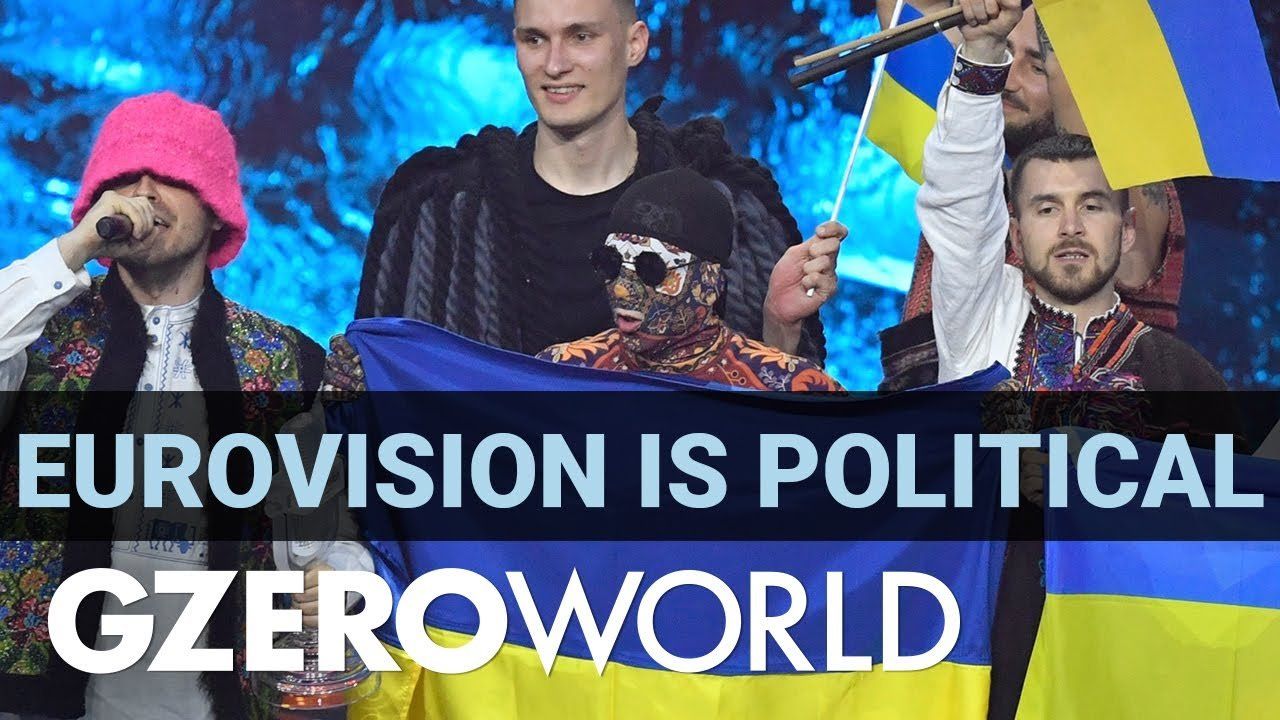GZERO Reports
What Eurovision means to Ukrainians at war

What Eurovision means to Ukrainians at war | GZERO World

Where else will you find banana-inspired wolves, dubstep rapping astronauts, or earworms about vampires? It’s Eurovision, of course: the 70-year-old song contest that pits nations against each other in an annual spectacle of camp, kitsch, and catchy melodies.
But for Ukrainians – who have won the contest three times in the past 20 years – the contest is about something much more.
On GZERO Reports, we visit a secret Eurovision watch party outside of Kyiv, a drag party in New York City, and look at how Eurovision is more political than you – or those wolves, astronauts, and vampires – could imagine.
For the uninitiated, the colorful annual Eurovision Song Contest pits countries against each other in a spectacle of camp, kitsch, and catchy pop music. It’s like the Olympics meets American Idol meets Burning Man. Each country submits an original song, and the winner is chosen through a combination of audience and professional jury votes.
The European Broadcasting Union, which organizes Eurovision, says the contest isn’t political (they turned down Ukrainian President Volodymyr Zelensky's request to speak at the finale), but in its almost 70-year history, politics have always found a way of creeping in.
Last Saturday’s Grand Finale was no exception. This year’s contest, held in Liverpool, England, was full of messages of unity and support for Ukraine, who could not host Eurovision after winning in 2022 because of the Russian invasion. GZERO traveled to two very different Eurovision watch parties—one in the heart of New York City and one in an undisclosed location on the outskirts of Kyiv—to see how politics and pop music come together for fans around the world.
"Just to see so much solidarity and so much diversity of thought and backgrounds embracing Ukraine through the power of music is very encouraging,” said Maxim Ibadov, the National Coordinator of RUSA LGBTQ+ and organizer of the NYC event, “Because Ukraine has beautiful culture and I’m so happy it’s being celebrated.”
Watch the upcoming episode of GZERO World with Ian Bremmer on US public television, airing nationwide. Check local listings.
41.5%: The proportion of Havana’s garbage trucks that were operational this month, according to state-run media, as Cuba’s fuel crisis prompts a garbage crisis.
Sovereignty has become one of the most powerful, and least defined, words in tech policy. At the 2026 Munich Security Conference, SAP global head of government affairs, Wolfgang Dierker, explains why governments and enterprise customers are demanding more control over their data, cloud infrastructure, and AI systems amid rising geopolitical uncertainty.
On the sidelines of the 2026 Munich Security Conference, Annemarie Hou, Executive Director of the United Nations Office of Partnerships, joined Tony Maciulis to discuss the power of women leaders in global decision-making.
In a new Global Stage livestream from the 2026 Munich Security Conference, New York Times White House and national security correspondent David Sanger moderates a conversation with Ian Bremmer (President & Founder, Eurasia Group and GZERO Media), Brad Smith (Vice Chair & President, Microsoft), Benedetta Berti (Secretary General, NATO Parliamentary Assembly), and Wolfgang Dierker (Global Head of Government Affairs, SAP) on how technology and defense are colliding in real time.